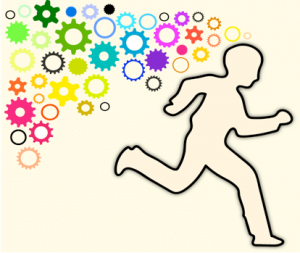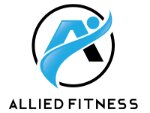Exercise with ADHD
By Brooke Fletcher
Attention deficit hyperactive disorder also known as ADHD is a mental health condition that causes above normal levels of hyperactivity. This can cause an increase in impulsive behaviours and a difficulty in focusing on a singular task or tasks for long periods of time.
There can be a lot of side effects with ADHD including but not limited to low self-esteem, avoiding activities requiring sustained mental attention and extreme restlessness which in turn can cause disruptions in day to day activities.

Exercise has been proven to have significant impact on the day to day lives of both children and adults living with ADHD. When you exercise there are certain chemicals released in the brain. These chemicals are said to benefit by reducing impulsive behaviours, regulating hyperactivity and helping with focus. There can be other psychological factors affecting those living with ADHD including stress and anxiety and exercise has been scientifically proven to benefit both of these conditions directly.
When it comes to Exercise Physiologists working with someone with ADHD they work with the client to find out what they enjoy and dislike. By making the exercises specifically targeted to the individual and enjoyable for them, they are able to focus on this task for a bit longer than a generic exercise program and in the long run may improve their ability to take instructions and their attention to detail.
There are of course the general benefits that come along with increased levels of physical activity. These include management of weight which is important as there is a higher correlation of obesity in individuals with ADHD. It also helps manage other co-morbidities including blood pressure and cholesterol which are linked to other chronic conditions. By empowering individuals with exercise and showing them what they can do, this will not only lead to an increase in strength but also to an increase in self-esteem.

Getting started with an exercise program and finding the right one that works for each individual can sometimes be daunting and seem like a challenge. An exercise Physiologist is here to make this process easier and target the program for each individual’s specific needs.
At Allied Fitness Australia we currently do a lot of work with the NDIS and see a lot of clients with ADHD. We work closely with support coordinators, family members and the clients to help reach their goals including increasing ability with activities of daily living as well as addressing other co-morbidities. For those who are unable to reach our facilities we also offer home visits.
If you do have funding with the NDIS you can access Exercise Physiology services under both the improved health and wellbeing and improved daily living categories and our dieticians can be accessed under improved health and wellbeing. If you are self-managed, Agency managed or Plan managed we work with the nominated providers in arranging service agreements through to the delivery of services.
If you would like more information on how we can help you or if you are unsure on your funding or eligibility please get in touch and organise a complimentary consultation with one of our Exercise Physiologists or dieticians today.
Brooke Fletcher
Accredited Exercise Physiologist
